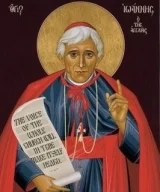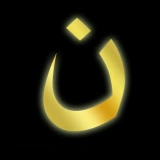Who is eligible for membership of the Ordinariate?
(from the Decree of Erection of The Personal Ordinariate of Our Lady of Walsingham, 15th January 2011:)
1. The Personal Ordinariate of Our Lady of Walsingham ipso iure possesses juridic personality and is juridically equivalent to a diocese. It includes those faithful, of every category and state of life, who, originally having belonged to the Anglican Communion, are now in full communion with the Catholic Church, OR who have received the sacraments of initiation within the jurisdiction of the Ordinariate itself, OR who are received into it because they are part of a family belonging to the Ordinariate.
7. A cleric, having come originally from the Anglican Communion, who has already been ordained in the Catholic Church and incardinated in a Diocese, is able to be incardinated in the Ordinariate in accord with the norm of can. 267 CIC.
9. The faithful of the Personal Ordinariate of Our Lady of Walsingham who are, temporarily or permanently, outside the territory of the Episcopal Conference of England and Wales, while remaining members of the Ordinariate, are bound by universal law and those particular laws of the territory where they find themselves.
(from the Complementary Norms for the Apostolic Constitution “Anglicanorum Coetibus”:)
Art 5 §2. A person who has been baptized in the Catholic Church but who has not completed the Sacraments of Initiation, and subsequently returns to the faith and practice of the Church as a result of the evangelizing mission of the Ordinariate, may be admitted to membership in the Ordinariate and receive the Sacrament of Confirmation or the Sacrament of the Eucharist or both.
However:
Art. 5 §1 … Those who have received all of the Sacraments of Initiation outside the Ordinariate are NOT ordinarily eligible for membership, unless they are members of a family belonging to the Ordinariate.
Individuals not belonging to Groups
Of course, the Ordinariate is for groups of Anglicans, so, obviously, if people can become part of a group, or at least be associated with one, that would be best. But there remains a major problem for isolated laity. It is quite clear from Fr. Ghirlanda’s commentary on the Apostolic Constitution that the Ordinariate is both for groups and individuals. So no one should miss out on belonging to the Ordinariate who wants to, just because they cannot belong to a group.
So, individuals who live where there is no group can still be part of the Ordinariate, but they worship at a local diocesan church. My advice is to go and see the local Catholic priest as a first step, and we can take it from there. People should ask if they can be catechised and received into the Catholic Church and register not as a member of that local parish but as a member of the Ordinariate. This is entirely possible.
Individuals would thus worship in the local diocesan Catholic Church and perhaps sometimes go and visit an Ordinariate group elsewhere for contact and support. It may even be possible to register with a group at a distance, even though a person would not normally worship with it. We hope that, should a group form (and that may be possible if we get 5 or 6 people at least), it could form a nucleus around which more Church life could grow into a viable regular congregation. The number constituting a group is not defined, but it is meant to be a “little church”. Until a group can form itself with some strength and momentum, an individual would still be a member of the Ordinariate, although normally worshipping at an existing local Catholic Church.
Those who feel God is calling them in the direction of the Ordinariate should come. If people experience real problems with what I have suggested, they should come back to us and we will not lose track of people seeking to join the Ordinariate.
Guidance for Receiving Individuals into the Catholic Church in the Ordinariate
The Catholic Church understands that people coming into the Catholic Church from the Anglican Church, and in particular Anglo-Catholics, who are already well versed in their Christian faith and Church life, are in a different category from standard catechumens or candidates and need to be treated in a different way.
For instance, in the catechesis of a practising Anglican, you would not need to spend a lot of time on the Nicene Creed. A well instructed Anglican would believe and comprehend it in any case, otherwise they would hardly be at the point of seeking to belong to the Roman Catholic Church. That said, however, there are real differences between the Anglican and Catholic Church: different ways of doing things and different ways of expressing and understanding the faith. For some this may be problematic and need to be worked through. So a more suitable catechetical programme should be followed. Priests can obtain advice from us.
It is worth saying that any enquirer as an individual or in a group is under no pressure because they simply wish to explore possibilities. If someone goes through the course and then says that they are not quite ready, that is fine. At the moment, enquirers have been asked to fill in a little form on which we record people’s details. This includes a place for them to sign, confirming that they believe all that is taught by the Catholic Church to be true. Some people have told me that they are not ready to sign it yet, so I have said “Don’t sign it.” It is not necessary for people to do so until they are ready to be received, and the period of exploration and discernment is still under way. It is a personal profession of faith that has to be right for each person.
Retired Clergy
What about retired Anglican clergy – will they be able to belong to the Catholic Church through the Ordinariate and continue to serve in a priestly ministry? The questions that have to be answered about individual priests not linked to a group are: a) are they useful to the Ordinariate or could they be? and b) are they useful to the local diocese or could they be?
It is quite possible for someone to be ordained within the Ordinariate, who would normally exercise his ministry within the diocesan context because he is not linked to a group and has no group he can be linked to. But it would require me to have a conversation with the local Catholic bishop about that person from the beginning, as it would be a question of whether he is going to be useful and work alongside the other priests in the diocese.
There is also the question of how the Congregation for the Doctrine of the Faith will look at applications from people who are not in groups. In any case, there needs to be a pastoral process of discernment for each of the priests who enter the Ordinariate and that will always involve a conversation with the local Catholic bishop about his views and needs. That is because we do not expect the Ordinariate clergy to be confined to ministering within the Ordinariate. Diocesan priests are overworked and they have a lot of pressure on them. There are big congregations and the more the Ordinariate clergy help the local clergy, the more the Ordinariate will be accepted as part of the natural Catholic life of the Church.
(Abridged excerpts from “What is the Ordinariate?” by Mgr. Keith Newton, January 2011)
If, after having read this you still have queries or are interested in joining the Ordinariate, please do not hesitate to contact us at: ordinariateexpats@gmx.de .











You can also join the Personal Ordinariate if you are a former Methodist, according to a CDF clarification in 2013. I am the first person from a Methodist background to become a member of the Personal Ordinariate here in Australia a few weeks ago on the basis of Anglican tradition (apparently the Anglican Communion considers Mthodism a part of Anglican tradition or at least that’s the way my Ordinary understands it).
I found this out after enquiring with the local Ordinary here in Australia who made enquiries to the US Personal Ordinariate to confirm this and obtain the relevant form. I was already a Catholic having come in the Church in 2004 and recently transferred to the Personal Ordinariate from the Archdiocese I had been in since 2004.
I was originally baptised as a Methodist, never a formal member of an Anglican Church (although at one point in my past I had attended an Anglican church for about a year but never formally became Anglican).
Anthony
cdiscipulus@outlook.com